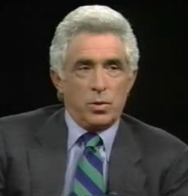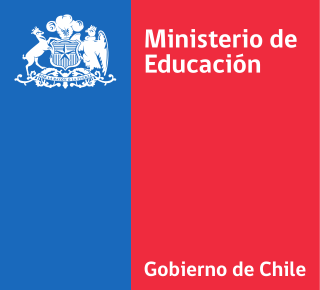Related Research Articles
A school voucher, also called an education voucher in a voucher system, is a certificate of government funding for students at schools chosen by themselves or their parents. Funding is usually for a particular year, term, or semester. In some countries, states, or local jurisdictions, the voucher can be used to cover or reimburse home schooling expenses. In some countries, vouchers only exist for tuition at private schools.
School choice is a term for education options that allow students and families to select alternatives to public schools. It is the subject of fierce debate in various state legislatures across the United States.
A 529 plan, also called a Qualified Tuition Program, is a tax-advantaged investment vehicle in the United States designed to encourage saving for the future higher education expenses of a designated beneficiary. In 2017, K–12 public, private, and religious school tuition were included as qualified expenses for 529 plans along with post-secondary education costs after passage of the Tax Cuts and Jobs Act.

Theodore Joseph Forstmann was one of the founding partners of Forstmann Little & Company, a private equity firm, and chairman and CEO of IMG, a global sports and media company. A billionaire, Forstmann was a Republican and a philanthropist. He supported school choice and funded scholarship programs for the disadvantaged. He led a tour of refugee camps in the former Yugoslavia.
Student financial aid in the United States is funding that is available exclusively to students attending a post-secondary educational institution in the United States. This funding is used to assist in covering the many costs incurred in the pursuit of post-secondary education. Financial aid is available from federal and state governments, educational institutions, and private organizations. It can be awarded in the form of grants, loans, work-study, and scholarships. In order to apply for federal financial aid, students must first complete the Free Application for Federal Student Aid (FAFSA).

The Ontario Student Assistance Program (OSAP) (French: Régime d'aide financière aux étudiantes et étudiants de l'Ontario ) is a provincial financial aid program that offers grants and loans to help Ontario students pay for their post-secondary education. OSAP determines the amount of money that a student is eligible to receive by considering factors such as tuition, course load, and the financial resources of the student. More than 380,000 students – more than half of all full-time students –received student financial aid in 2014-15.
Zelman v. Simmons-Harris, 536 U.S. 639 (2002), was a 5–4 decision of the United States Supreme Court that upheld an Ohio program that used school vouchers. The Court decided that the program did not violate the Establishment Clause of the First Amendment, as long as parents using the program were allowed to choose among a range of secular and religious schools.

The HOPE Program created in 1993 under the supervision of Georgia Governor Zell Miller, is Georgia's scholarship and grant program that rewards students with financial assistance in degree, diploma, and certificate programs at eligible Georgia public and private colleges and universities, and public technical colleges. HOPE is funded entirely by revenue from the Georgia Lottery and is administered by the Georgia Student Finance Commission (GSFC). The HOPE Scholarship Program has awarded over $14 billion to more than 2.1 million Georgia students since its inception in 1993.
The Tuition Assistance Program is a financial aid program for students who are New York State residents and who are attending a post-secondary educational institution in New York. It is a program of the Higher Education Services Corporation which is a New York State Agency.
Universal preschool is an international movement supporting the use of public funding to provide preschool education to all families. This movement is focused on promoting a global, rather than local, preschool program. The goal is to provide equity across all socioeconomic backgrounds, enabling children to improve their academic and social skills before they attend kindergarten. Universal preschool, funded by the public, would allow more families to send their children to preschool.

Education in Chile is divided in preschool, primary school, secondary school, and technical or higher education (university).The levels of education in Chile are:
Kalamazoo Public Schools is a school district headquartered in Kalamazoo, Michigan. Graduates of the district are eligible to receive scholarships through the Kalamazoo Promise, a program launched in 2005 and funded by anonymous donors. The district operates 31 schools.

Education in Gabon is largely based on the French educational system. On the federal level, it is regulated by two Ministries: the Ministry of Education, which is in charge of Pre-school through to High School, and the Ministry of Higher Education and Innovative Technologies, which is in charge of universities and professional schools.
Cal Grant is a financial aid program administrated by the California Student Aid Commission (CSAC) providing aid to California undergraduates, vocational training students, and those in teacher certification programs. Cal Grants are the largest source of California state funded student financial aid.
Gaining Early Awareness and Readiness for Undergraduate Programs is a federal grant program administered by the United States Department of Education. It was established in Chapter 2 of the 1998 amendments to the Higher Education Act of 1965 which awarded financial assistance to students and colleges from the federal government. GEAR UP was authored by Congressman Chaka Fattah and signed into law by President Bill Clinton in October, 1998.
The D.C. Opportunity Scholarship Program provides scholarships to low-income children in Washington D.C. for tuition and other fees at participating private schools. The program was the first Federally funded school voucher program in the United States. It was first approved in 2003 and allowed to expire for the first time in 2009 under the Obama administration. The program was reauthorized under the SOAR Act in 2011, but again defunded at the end of the second Obama presidency. The program was reinstated under President Trump.

Step Up for Students is a 501(c)3 nonprofit in Florida providing low income students, bullied students and students with special needs with scholarships to help pay tuition for private school, assistance to attend an out of district public school, or for tutoring, textbooks or therapies. Step Up For Students was created as part of a merger between Florida's two largest scholarship organizations Florida P.R.I.D.E and Children First, which was founded by Tampa Bay businessman John Kirtley. Kirtley had founded a previous scholarship organization, Children's Scholarship Fund of Tampa Bay in 1998 and received more than 15,000 applications for 750 available scholarships. The large demand led Kirtley to help push for the creation of the Florida Tax Credit Scholarship, which was signed into law in 2001. That scholarship program allows donors to receive dollar for dollar tax credits for contributions to nonprofits offering scholarships to low-income students in Florida. The scholarship was capped at $50 million for the 2002-03 school year and scholarships were awarded to 15,585 students.
The Free School is the oldest independent, inner-city alternative school in the United States. Founded by Mary Leue in 1969 based on the English Summerhill School philosophy, the free school lets students learn at their own pace. It has no grades, tests, or firm schedule: students design their own daily plans for learning. The school is self-governed through a weekly, democratic all-school meeting run by students in Robert's Rules. Students and staff alike receive one equal vote apiece. Unlike Summerhill-style schools, the Free School is a day school that serves predominantly working-class children. Nearly 80 percent of the school is eligible for reduced-price meals in the public schools. About 60 students between the ages of three and fourteen attend, and are staffed by six full-time teachers and a number of volunteers.
The Jack Kent Cooke Foundation is a private, independent foundation which provides scholarship programs to gifted students in the U.S. who have financial need. It offers academic advising and other support services to students from 8th grade to graduate school. Since 2000, it has awarded over $175 million in scholarships to nearly 2,300 students and more than $97 million in grants to organizations that serve gifted low-income students.
Financial issues facing students in the United States include the rising cost of tuition, as well as ancillaries, such as room and board, textbook and coursework costs, personal expenses, and transportation.
References
- ↑ "Children's Scholarship Fund - Private Education Scholarships".
- ↑ "Our Impact". Children's Scholarship Fund. Retrieved 4 December 2015.
- ↑ Smarick, Andy; Robson, Kelly (2015). Catholic School Renaissance: A Wise Giver's Guide to Strengthening a National Asset. Philanthropy Roundtable. p. 22. ISBN 978-0986147432.